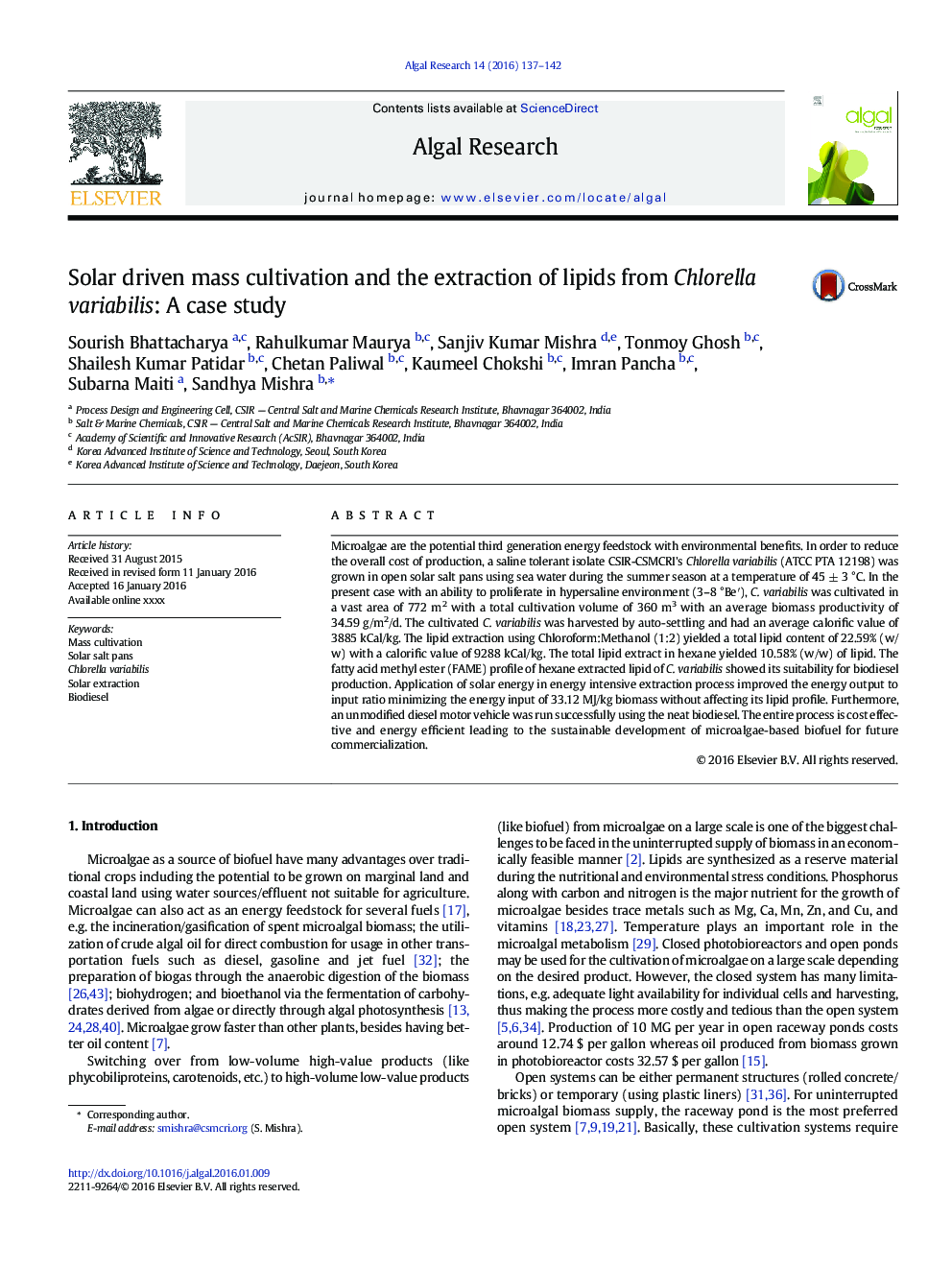| Article ID | Journal | Published Year | Pages | File Type |
|---|---|---|---|---|
| 8087402 | Algal Research | 2016 | 6 Pages |
Abstract
Microalgae are the potential third generation energy feedstock with environmental benefits. In order to reduce the overall cost of production, a saline tolerant isolate CSIR-CSMCRI's Chlorella variabilis (ATCC PTA 12198) was grown in open solar salt pans using sea water during the summer season at a temperature of 45 ± 3 °C. In the present case with an ability to proliferate in hypersaline environment (3-8 °Beâ²), C. variabilis was cultivated in a vast area of 772 m2 with a total cultivation volume of 360 m3 with an average biomass productivity of 34.59 g/m2/d. The cultivated C. variabilis was harvested by auto-settling and had an average calorific value of 3885 kCal/kg. The lipid extraction using Chloroform:Methanol (1:2) yielded a total lipid content of 22.59% (w/w) with a calorific value of 9288 kCal/kg. The total lipid extract in hexane yielded 10.58% (w/w) of lipid. The fatty acid methyl ester (FAME) profile of hexane extracted lipid of C. variabilis showed its suitability for biodiesel production. Application of solar energy in energy intensive extraction process improved the energy output to input ratio minimizing the energy input of 33.12 MJ/kg biomass without affecting its lipid profile. Furthermore, an unmodified diesel motor vehicle was run successfully using the neat biodiesel. The entire process is cost effective and energy efficient leading to the sustainable development of microalgae-based biofuel for future commercialization.
Related Topics
Physical Sciences and Engineering
Energy
Renewable Energy, Sustainability and the Environment
Authors
Sourish Bhattacharya, Rahulkumar Maurya, Sanjiv Kumar Mishra, Tonmoy Ghosh, Shailesh Kumar Patidar, Chetan Paliwal, Kaumeel Chokshi, Imran Pancha, Subarna Maiti, Sandhya Mishra,
